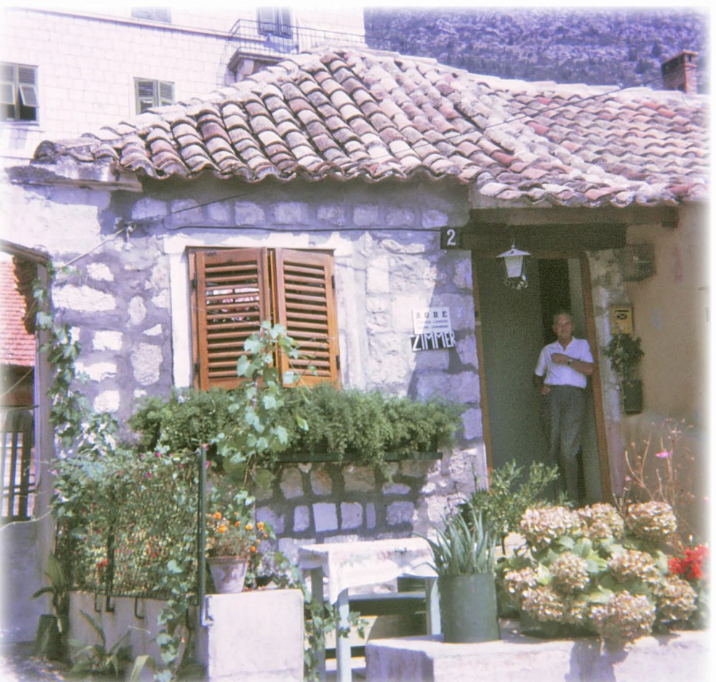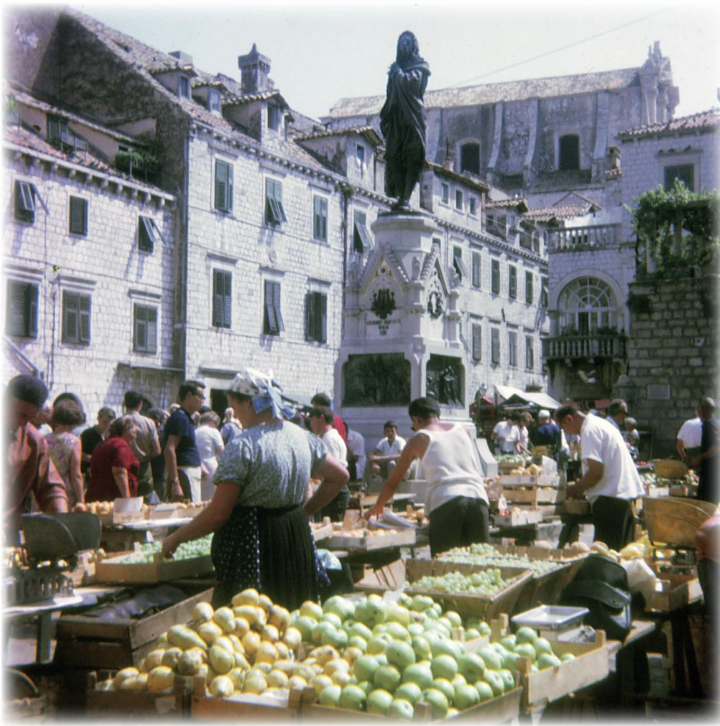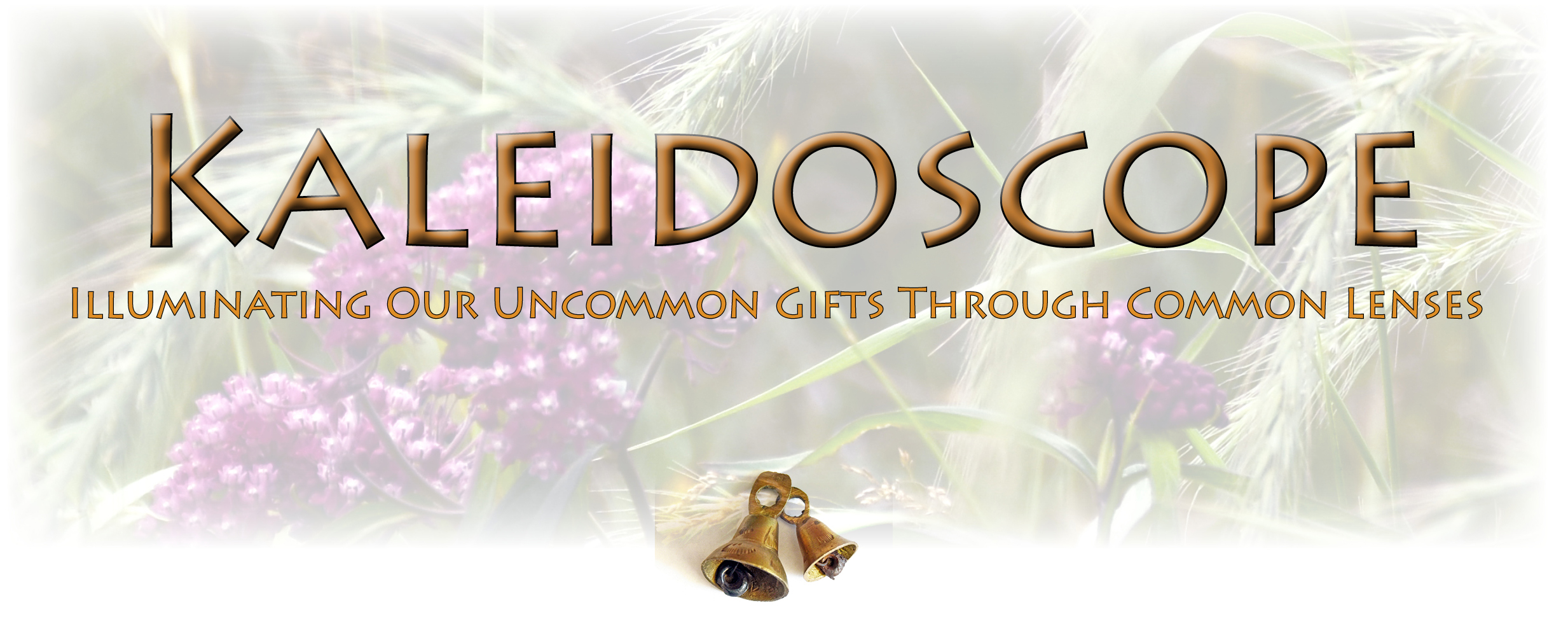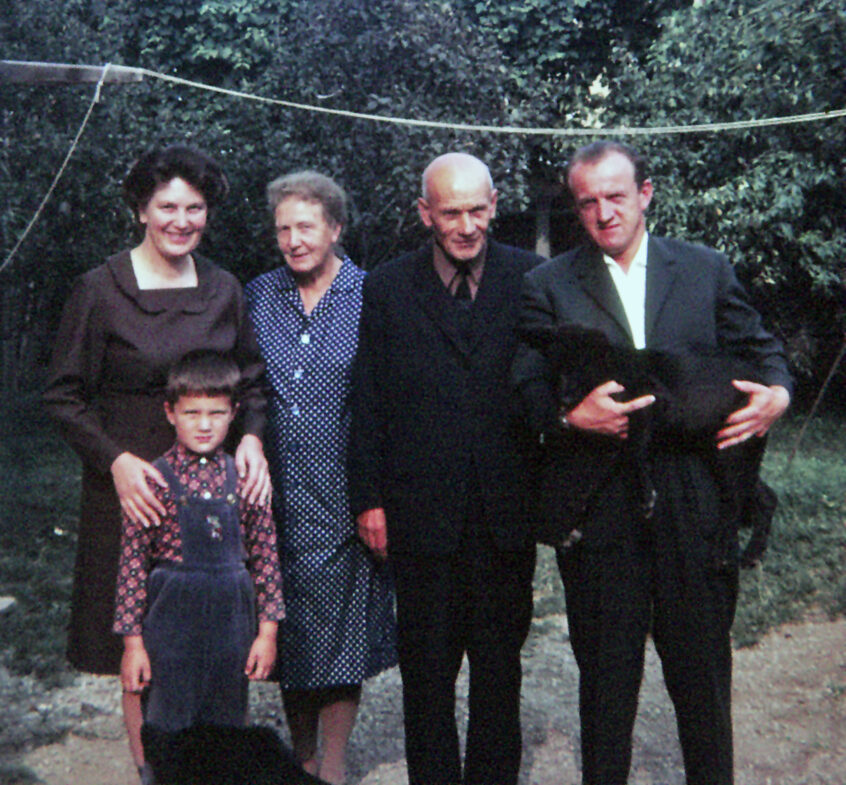Maria, Tomaš, Srečko’s wife, Srečko, Maria’s husband, and their dog in their backyard.
(Scan of a 35mm slide)
.
I realized if I didn’t start talking to my relatives, asking questions,
thinking back to my own beginnings, there would come a time when
those people wouldn’t be around to help me look back and remember.
~ Jacqueline Woodson
.
The train trip from Prague through Bratislava, Vienna, Graz, and Maribor was absolutely beautiful. As the train stopped in Maribor, I heard a man with a loud booming voice shouting, “Varvara Sheepka! Varvara Sheepka!” What the heck? It turned out that the voice belonged to Grandma’s brother and my great uncle, Srečko. Apparently he was worried he might not find me. And I couldn’t believe how much he looked like my father – it was a foreshadowing of what my father would look like in twenty years.
Uncle Srečko’s grandson, Tomaš, was with him. They recognized me from my high school graduation photo that I had sent to the family some years earlier. The two of them gathered my things. Outside the train station we caught a bus to their home. Neither of them spoke English so it was a quiet ride. Maria, Srečko’s daughter and my second cousin, was at the door to greet us when we arrived at their modest family home. She spoke English very well which was a relief.
This first stop following two months on an independent study scholarship in (then) Czechoslovakia would be to visit my grandmother’s family. The only other US relative who had visited them was my father. He had been on an independent study with the same scholarship fifteen years earlier when he was a university student on the GI bill. I was five at that time.
Following are some of my memories of my visit with them.
- Srečko and Tomaš took me on short jaunts to see the sights of Maribor. Somehow we managed well despite the language barrier. Maria took me grocery shopping with her. We ate meals together at a small humble table in the center of the kitchen. It was a gentle experience.
- I spent my twenty-first birthday with them. We toasted with Šlivovitz (plum brandy) which was to Yugoslavia what aquavit is to Scandinavia. I had tasted it once before when my grandfather gave me a small glass. Also, I noticed that they usually had a glass of wine – even Tomaš who was about seven or eight – with their evening meals. Totally new to me. I told them about how we had a law in the US that made it illegal to drink alcohol before turning twenty-one. They were shocked and had never heard of such a thing!
- Maria spent an afternoon showing me towels, soaps, clothing, and so much more that Grandma had sent years earlier. She clearly was so grateful and told me the story of what the items – which also included coffee, sugar, salt, beans, and other cooking staples that had long since been eaten – had meant to her and to her family following World War Two. She said something like, “Your grandmother’s thoughtfulness and generosity completely changed our lives for the better. It was a long time before we could find such things in stores here.” I was especially touched because about once a month from when I was about twelve until Grandma died when I was sixteen, I had gone to her home (1/4 a mile from our home) to help her pack up whatever she had gathered for them and prepare it for shipping.
. - Maria also showed me the path where resistance fighters traveled during WWII. It transected their backyard. I was in awe imagining what it must have been like. To allow resistance fighters to use their backyard was dangerous, after all!
. - I had traveled with very little spending money. I did have a Eurail pass good for Western Europe so that helped a lot because I could sleep on the trains. I had written home to ask if my parents could possibly send me some money. So during my visit I received several letters from my mother. Each had a $10 bill in it. So I was good to go. I only had to buy a ticket for the short trip from Maribor to Venice and then I’d be back in Eurail territory.
. - Maria said she thought it was important for me to see more of the country and to visit the Dalmatian coast. So she decided she would buy me a train ticket from Maribor through Sarajevo and on to Dubrovnik. In addition, she bought a boat ticket from Dubrovnik up the Dalmatian coast to Venice. It felt far too generous for me to accept given I knew they didn’t have much money either and I told her so. She responded with something like, “If you feel you cannot accept it for yourself, do it on behalf of your generous and loving grandmother. Know that this gift is a very small token of reciprocity for all she gave us over the years.”
. - That trip was enchanting! All of it. I stayed in the home of a retired sea captain and his family just outside the walled city. From their home we had a view of the southern moat, drawbridge, and gate. My bed was in an alcove behind a curtain. It cost me $1 per night. The beach was wonderful. And what I hadn’t known until I got to Dubrovnik was that the month of August is a time of many informal free music concerts and dramas mostly performed in the old walled city right from people’s verandas and balconies. The boat trip was great as well. Overall, it was one of the best gifts I’ve ever gotten.

Above: The home outside the walled city where I stayed with Captain Škeryl in the doorway.
Below: The vegetable market inside the walled city of Dubrovnik.
(Scans of 35mm slides)

Photos by Barbara
Scans of 35mm slides
Taken 58 years ago
Maribor, Slovenia
Dubrovnik, Croatia

